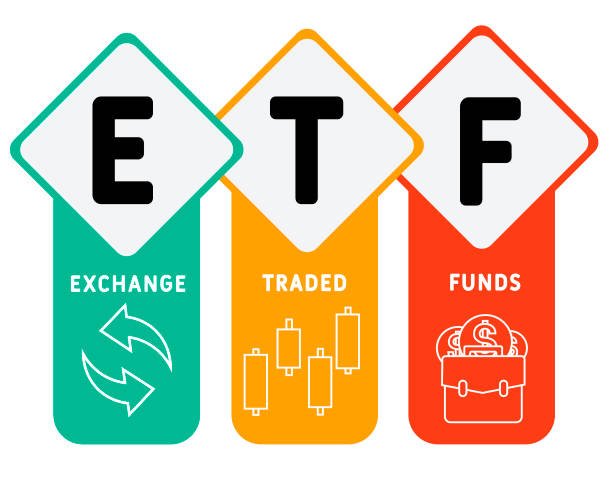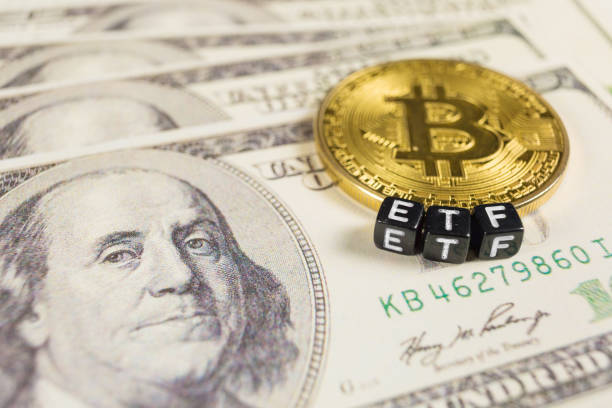How Does a Spot Bitcoin ETF Work?
With a spot bitcoin exchange-traded fund (ETF), regular investors can use their regular brokerage accounts as an investment vehicle that gives them exposure to changes in the price of bitcoin. A spot bitcoin ETF invests in actual bitcoins as the underlying asset, as opposed to derivatives contracts based on their prices, as opposed to bitcoin futures ETFs.
Exchange-traded products (ETPs) known as spot bitcoin ETFs provide a regulated and easily accessible means for regular investors to participate in the virtual currency. Even yet, the absence of time exchange-related costs associated with directly purchasing and holding bitcoins helps to offset expenditures like management fees and brokerage charges.
Although both kinds of ETFs have been widely accepted in other nations, concerns about custodial risk and market manipulation initially made U.S. regulators wary. The first bitcoin spot ETFs were approved by the U.S. Securities and Exchange Commission in January 2024, and the first bitcoin futures ETFs in 2021.

How Bitcoin ETFs at Spot Operate
Spot bitcoin ETFs employ registered custodians to safely store bitcoins in a digital vault. This type of ETF aims to replicate the value of bitcoins on the cryptocurrency market. The ETF purchases bitcoins from other holders or through approved cryptocurrency exchanges in order to get started. After that, the tokens are kept in a digital wallet, which frequently uses multiple security layers, such as offline or cold storage, to lower the risk of hacking.
After that, the ETF issues shares in proportion to the total amount of bitcoins it owns. The price of an ETF share should correspond to the current cryptocurrency market price, and shares can be traded by the general public on conventional stock exchanges. As a result, the ETF’s shares try to closely mirror the price of bitcoins, and it periodically adjusts its holdings by purchasing or disposing of tokens.
Authorized participants handle both the creation and redemption processes (APs). Usually, big financial organizations, issue or redeem ETF shares in response to market demand. The APs issue or redeem ETF shares in bulk, thereby arbitraging the difference between the ETF shares’ market value and the actual price of bitcoins.
Comparing Spot and Other Bitcoin ETFs
The way that spot bitcoin ETFs and derivatives-based bitcoin ETFs are designed and the degree of exposure they provide to fluctuations in the price of bitcoin is different. While derivatives-based bitcoin ETFs utilize financial instruments like futures contracts to mirror the price of bitcoin, spot bitcoin ETFs hold bitcoins directly.
Thus, spot bitcoin ETFs hold bitcoins directly. Investors will find spot bitcoin ETFs easier to understand because of this exposure, which is more intuitive. Due to the fact that each share of the ETF represents a particular quantity of bitcoins held, spot bitcoin ETFs can therefore be more transparent.
In contrast, because the value of derivatives-based exchange-traded funds (ETFs) is indirectly derived from futures contracts, which are subject to a variety of factors, it may be more opaque for investors.
Spot Bitcoin ETF Benefits and Drawbacks
Advantages
The benefits that investors believe spot bitcoin ETFs offer are listed below.
Convenience: Spot bitcoin ETFs’ availability to a wider spectrum of investors is one of their main advantages. Spot bitcoin ETFs significantly reduce the obstacles to entering the cryptocurrency space. It is exempt for investors to handle Bitcoin wallets, use online cryptocurrency exchanges, or struggle with private and public keys. When these technological barriers are removed, asset management becomes more approachable and appealing to individuals who are used to traditional investing methods.
Liquidity: Using well-known brokerage accounts, spot bitcoin ETFs facilitate the buying and selling of bitcoins. The procedure is similar to trading conventional equities or exchange-traded funds (ETFs), making it a smooth transition for average investors.
Supervision by regulations: When you buy your
Cons
Spot bitcoin ETFs include risks, just like any other investment product.
The most evident is the market volatility of bitcoin values, which has the potential to cause large financial losses. By handling ownership and storage, the ETF structure can help reduce some of the complexity related to cryptocurrencies, but it cannot protect you from the market’s inherent hazards.
Regulatory ambiguity: The absence of a well-defined regulatory structure to safeguard investors poses an additional danger. How dangers like fraud, manipulation, and asset loss will be handled is still quite unclear until more thorough oversight and regulations are put in place. The marketplaces for cryptocurrencies are still developing, and new laws may have an impact on how well bitcoin ETFs perform. For instance, modifications in

Spot Bitcoin ETF Pros & Cons
Pros
- Direct holding of bitcoins
- Ease of use
- Liquidity: easier to buy and sell quickly
- Potential tax benefits
- Lower operational risks
Cons
- Remains a volatile asset class
- Risk of cyber theft from custodians
- Regulatory uncertainty
- Management fees
- Tracking error
Spot Bitcoin ETFs’ Future
On January 10, 2024, the Securities and Exchange Commission (SEC) of the United States approved eleven spot bitcoin ETFs. The regulators had been hesitant to approve any applications for spot bitcoin ETFs up until that point due to worries about fraud, market manipulation, custody, and investor protection.
Popular digital asset manager Grayscale Investments had previously had multiple applications for a spot bitcoin exchange-traded fund (ETF) denied by the SEC. A federal appeals court concluded in August 2023 that the SEC had not given enough justification for rejecting Grayscale’s application and was incorrect in doing so.
However, the SEC chose not to file an appeal of the decision. The regulator approved Grayscale’s proposal in January 2024 and other applications from significant companies in the industry, including Bitwise, BlackRock iShares, WisdomTree,
Is the Price of Bitcoin Affected by Spot Bitcoin ETFs?
Although a spot bitcoin ETF has no direct influence on bitcoin prices, it can have a number of indirect effects:
Increased adoption: Mainstream investors who wish to have exposure to bitcoins in their brokerage accounts are likely to make sizable investment inflows into a spot bitcoin exchange-traded fund (ETF). This inflow of fresh money and investors may drive up the price of bitcoin as demand increases.
Market validation: The acceptance and introduction of a spot bitcoin exchange-traded fund (ETF) will bolster the credibility of bitcoin inside the mainstream banking sector. This perceived legitimacy might increase people’s trust in bitcoins and raise their prices.
Trading activity: Hedge funds, day traders, and other investors may have additional opportunities to trade bitcoin exposure actively if a spot ETF is introduced.

What Role Does a Spot Bitcoin ETF Play in the Market’s General Liquidity?
By bringing in more buyers and sellers, spot bitcoin ETFs may improve the market’s liquidity. Regular investors may find Bitcoin more appealing if there is greater liquidity since it can result in more stable pricing and less volatility.
Do Dividends Get Paid by Spot Bitcoin ETFs?
No. Since bitcoins don’t produce any revenue, spot bitcoin ETFs don’t pay dividends. The primary source of the investment value of spot bitcoin exchange-traded funds (ETFs) is the increase or decrease in the value of bitcoins. Investors should understand that capital appreciation from changes in the price of bitcoin, rather than dividend income, is the main goal of investing in a spot bitcoin exchange-traded fund (ETF).
Does Spot Bitcoin Have Any Minimum Investment Requirements?
Spot bitcoin ETFs should typically have a low minimum investment, in contrast to certain investment vehicles that have hefty minimum requirements. ETF shares are available to regular investors because they can be bought in single shares. Smaller investments, however, are frequently more affected by transaction costs and the expense ratio of the ETF.
The Bottom Line: By providing a regulated and easy-to-use means of investing in Bitcoin, spot Bitcoin exchange-traded funds (ETFs) mark a noteworthy advancement in the cryptocurrency space.
Spot bitcoin exchange-traded funds (ETFs) have the potential to significantly contribute to the stabilization and expansion of bitcoin adoption by improving price discovery, increasing market liquidity, and drawing in more institutional investors. But concerns may also arise from the repercussions of rising demand and speculative trading.
